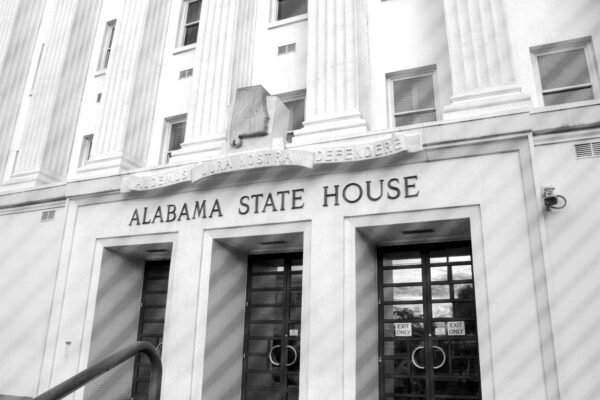MONTGOMERY, Ala. — A new review of legislation considered in the 2022 Alabama Legislative Session revealed that one in six bills introduced by lawmakers would make it easier to arrest, convict, and sentence Alabamians to prison.
The ACLU of Alabama today released its Statehouse to Prison Pipeline Report after a months-long review of every piece of legislation introduced by Alabama legislators this year. Of the 873 bills introduced, 148 bills, or 17 percent, sought to criminalize or increase penalties for individual behavior, expand law enforcement’s reach, or adopt other unconstitutional policies that would add to the state’s already dire prison crisis. Ultimately, 32 of these bills passed both legislative chambers and were signed into law by Alabama Governor Kay Ivey. Among the 32 bills passed into law in the 2022 Regular Session, most were predominately local bills – legislation that applies to one county – that established new fees and salaries collected by local law enforcement.
"Our leaders can no longer abdicate their responsibility to address the crisis in our prisons and our dysfunctional criminal justice system, and more pipeline legislation is not a meaningful solution,” said Dillon Nettles, the policy and advocacy director for the ACLU of Alabama. “The Department of Corrections is receiving more than double the investment our children receive in early childhood education and legislators expended $400 million in American Rescue Plan Act (ARPA) Funds on new prisons, but few and far between have offered proposals that address why we have one of the highest incarceration rates in the world.”
This is the second year in a row that the ACLU has conducted this analysis. It defined a bill as a prison pipeline bill if it:
- Criminalized a behavior or action.
- Increased penalties for a behavior or action.
- Increased spending or the budget of a carceral institution.
- Relied on an unsubstantiated or disproven reform effort.
- Developed unique protections or special privileges for law enforcement officers. Or,
- Targeted or more acutely impact economically insecure Alabamians.
Ninety-nine House bills and 49 Senate bills met the ACLU’s prison pipeline definition. The ACLU highlighted four of those bills in its report — The Trans Healthcare Ban (HB 266/SB 184) introduced by Senator Shay Shellnutt (SD-17) and Rep. Wes Allen (HD-89); the Anti-Protest Bill (HB 2/SB 3) introduced by Rep. Allen Treadway (HD-51) and Senator Shay Shellnutt (SD-17); the Voting Suppression Bill (HB 194) introduced by Rep. Wes Allen (HD-89); and the Nick Risner Act (HB 143) introduced by Rep. Phillip Pettus (HD-1). The Anti-Protest Bill was the only bill of the four not approved by the legislature and signed into law.
The number of pipeline bills introduced by Alabama lawmakers increased in this year’s session by 26.4 percent. In the 2021 Legislative Session, lawmakers introduced 117 pipeline bills, of which 52 became law.
"The Alabama Legislature and Governor Ivey have continued prioritizing carceral solutions over policies that address roots causes and that make all Alabamians safer,” said JaTaune Bosby Gilchrist, the executive director of the ACLU of Alabama. “Our prisons remain overcrowded, violent, and drug-filled and pipeline legislation only worsens these problems as we push more people into a system designed for punishment and not rehabilitation.”
-END- The ACLU of Alabama works to preserve and protect the civil liberties and civil rights guaranteed by the U. S. Constitution, especially the principles contained in the Bill of Rights.Learn more at aclualabama.org.
Stay Informed
Sign up to be the first to hear about how to take action.
By completing this form, I agree to receive occasional emails per the terms of the ACLU’s privacy statement.
By completing this form, I agree to receive occasional emails per the terms of the ACLU’s privacy statement.

